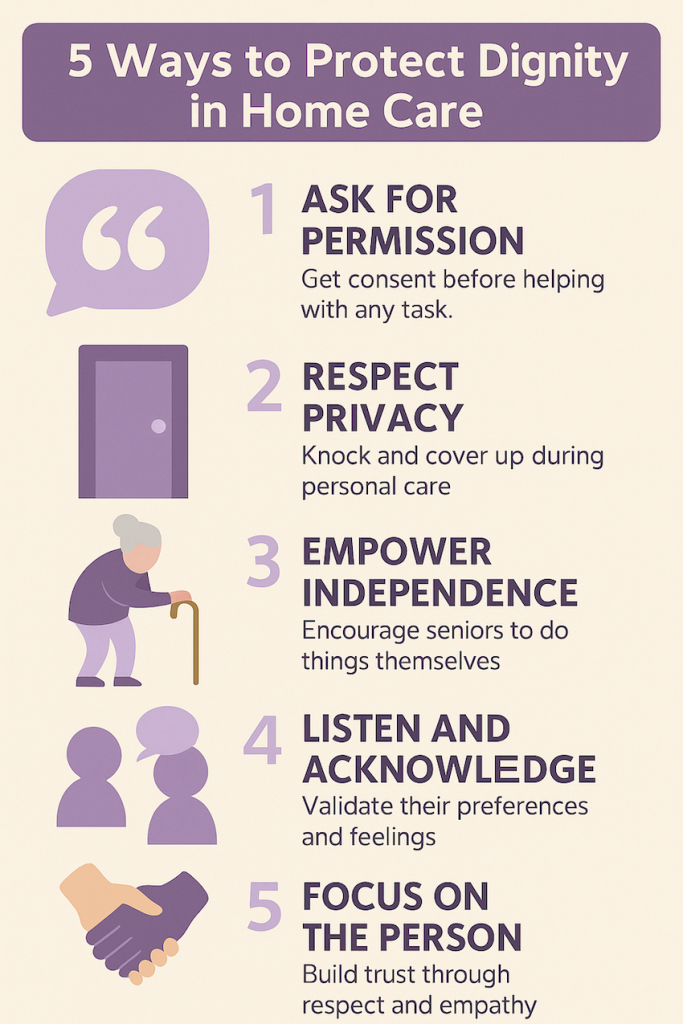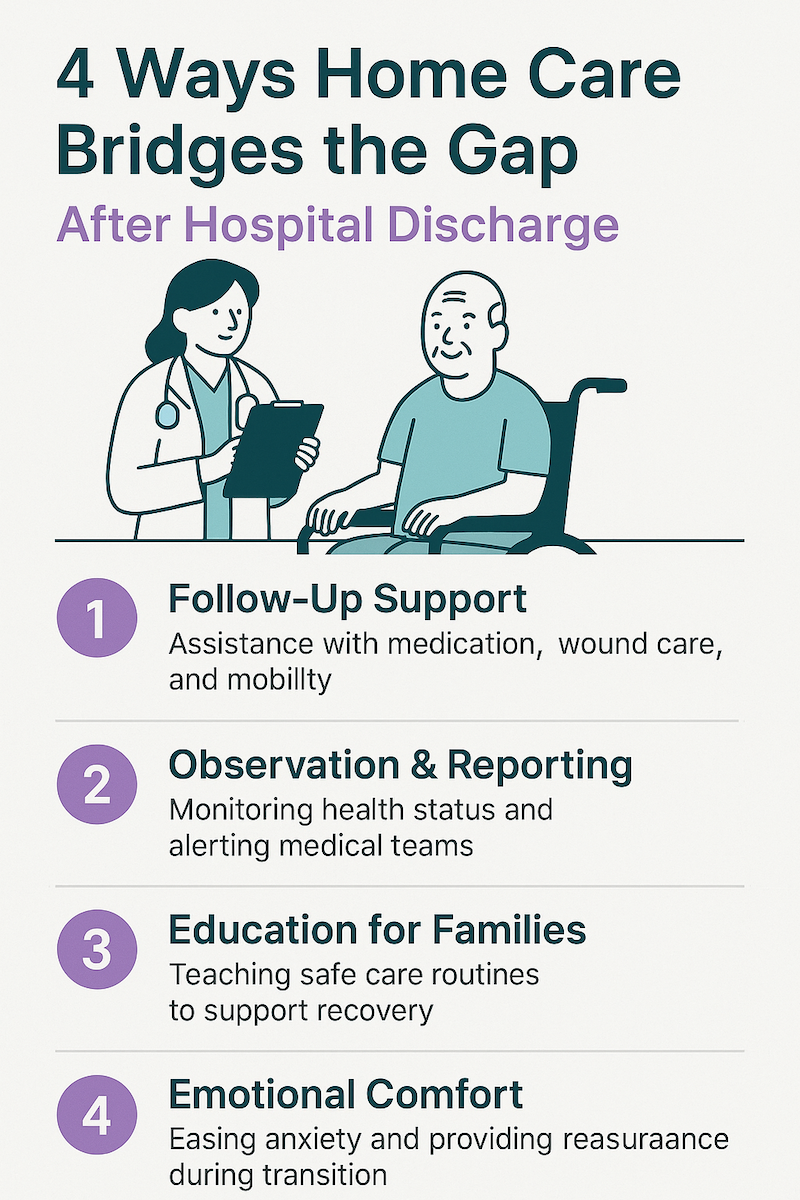
Dignity is one of the most important—and often least discussed—aspects of home care. Beyond medications, mobility, and meal prep, dignity is about how care makes a person feel. It’s about being seen, respected, and valued, no matter age, health, or circumstance.
In a system focused on efficiency and outcomes, it’s time to return to what matters most: the human experience of care.
What Dignity Really Means in Care
For seniors, dignity is tied to autonomy and self-worth. It means having choices, being listened to, and receiving help in a way that preserves privacy and respect.
Dignity looks like:
-
- Asking before offering assistance.
- Speaking with someone, not about them.
- Maintaining independence wherever possible.
- Treating each person as an individual—not a routine or checklist.
When caregivers lead with empathy and respect, care becomes more than a task—it becomes a relationship.
The Cost of Overlooking Dignity
When dignity is ignored, the emotional toll can be as damaging as any physical illness.
-
- Loss of confidence: Seniors may withdraw or become hesitant to ask for help.
- Emotional distress: Feelings of embarrassment or helplessness can lead to depression.
- Reduced cooperation: When seniors feel disrespected, trust and communication break down.
The way care is delivered can either lift someone up—or unintentionally make them feel small.
How Caregivers Can Promote Dignity Every Day
-
- Ask for Permission
Always seek consent before performing any task, no matter how routine. - Respect Privacy
Knock before entering rooms, cover the person during care, and ensure comfort. - Empower Independence
Encourage seniors to do what they can, even if it takes a little longer. - Listen and Acknowledge
Validate feelings and preferences, even when they differ from your own. - Focus on the Person, Not the Task
A warm conversation can mean as much as a completed care plan.
- Ask for Permission
Families and Dignity
Families play an important role in preserving dignity, too. Involving seniors in decisions about their routines, caregivers, and environments reinforces that their voice matters.
Small gestures—asking opinions, respecting traditions, sharing stories—help seniors feel recognized and valued.
Looking Ahead
True care goes beyond service—it’s about connection. Redefining dignity in home care means ensuring that every visit, every task, and every interaction is built on compassion and respect.
Because how care is delivered is just as important as the care itself.
